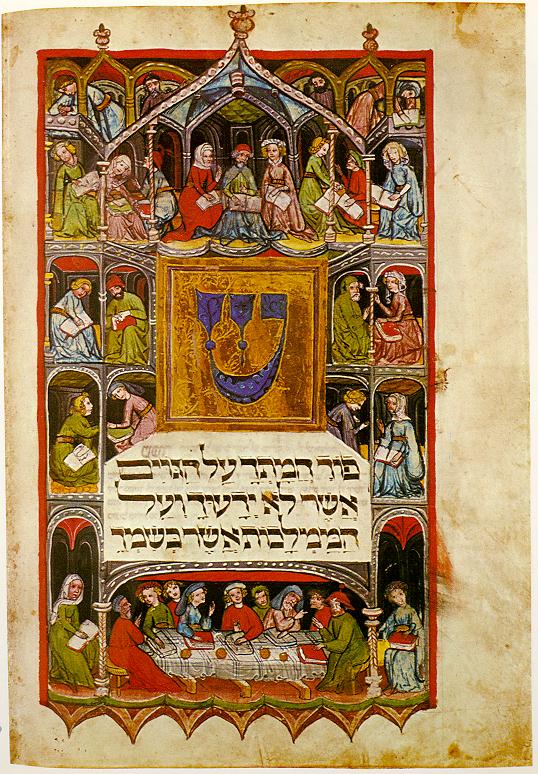24 Mar. Moses receives further religious laws and guidance
“Then God said to Moses, ‘These are the laws for living that you will give to the Israelites:
If you buy a Hebrew slave, he will serve you for six years. In the seventh year you are to set him free, and he will have to pay nothing…'”
“'Anyone who hits a person and kills him must be put to death. But if a person kills someone accidentally, God allowed that to happen, so the person must go to a place [of refuge] I will choose…'”
“'If a man’s bull kills another man’s bull, they must sell the bull that is alive. Both men will get half of the money and half of the bull that was killed…'”
“'If a man steals a bull or a sheep and kills or sells it, he must pay back five bulls for the one bull he stole and four sheep for the one sheep he stole…'”
“'If a thief is killed while breaking into a house at night, the one who kills him is not guilty of murder. But if this happens during the day, he is guilty of murder…'”
“'If a man borrows an animal from his neighbour and it gets hurt or dies while the owner is not there, the one who borrowed it must pay the owner for the animal…'”
“'Put to death any woman who does evil magic…'”
“'Do not cheat or hurt a foreigner, because you were foreigners in the land of Egypt…'”
“'Do not cheat a widow or an orphan. If you do, and they cry out to me for help, I certainly will hear their cry…'”
“'If you lend money to one of my people who is poor, do not treat him as a moneylender would. Charge him nothing for using your money…'”
“'You must not do wrong just because everyone else is doing it. If you are a witness in court, you must not ruin a fair trial…'”
“'For six years you are to plant and harvest crops on your land. Then during the seventh year, do not plough or plant your land…'”
“'Three times each year you must hold a feast to honour me. You must celebrate the Feast of Unleavened Bread in the way I commanded you. For seven days you must eat bread that is made without yeast at the set time during the month of Abib, the month when you came out of Egypt…'”
“'You must celebrate the Feast of Weeks. Offer to God the first things you harvest from the crops you planted in your fields.'”
“'You must celebrate the Feast of Shelters in the autumn, when you gather all the crops from your fields.'”
“'So three times during every year all your males must come to worship the LORD God.'”
(Exodus 21:1 – 23:17)

After recounting the origin of the Ten Commandments, the book of Exodus goes on to record other laws given by God to the Israelites about slavery, injuries, property, relationships and fairness. Some of these laws sound familiar to us today, while others seem quite strange to modern ears. We’ve selected just a few of the many laws and regulations here. You can read all the others laws in Exodus chapters 21 to 23.
The Bible goes on to list the regulations the Israelites received about keeping the main Jewish religious festivals.
The Israelites were commanded to celebrate three annual religious festivals (see Exodus 23:14-19). These were the Feast of Unleavened Bread (Passover), the Festival of Weeks (Pentecost) and the Feast of Ingathering (Tabernacles).
Unleavened Bread (Passover or Pesach), held in the first month of the Jewish religious calendar, was initiated to commemorate the Exodus from Egypt in c.1447BC when the LORD led his people out of slavery (see Exodus 12:1-20). The Jews ate unleavened bread (bread made without yeast) to remember that the Israelites didn't have time to let their bread rise before leaving Egypt.
The first day of the festival was called Passover or Pesach because the Israelites smeared blood on their doorposts so the Angel of Death would pass over and not harm their first-born. In commemoration of the Passover, each family killed and roasted a sacrificial lamb (the Pesach or ‘Paschal’ lamb) whose blood saved them from death.
The festival was celebrated between mid-March and mid-April. The final day of the festival was called Firstfruits. On this day, the first sheaves of the barley harvest were presented to God.
Weeks (Pentecost, Harvest or Shavuot) was the main harvest festival, celebrating the end of the wheat harvest. It was held seven weeks after the first barley harvest (see Exodus 34:22). As it was fifty days after Passover, it became known as Pentecost (‘penta’ signifies fifty). It usually occurred in late May or early June.
Ingathering (Tabernacles or Sukkot) celebrated the gathering in of the grapes, figs and olives that had ripened during the dry summer months. It was an autumn harvest festival held in late September or October.
The feast also commemorated the time when the Israelites escaped from Egypt. Having no permanent homes, they pitched their tents (tabernacles) or temporary shelters wherever they found sufficient water or grazing for their livestock (see Exodus 17:1). It was usually celebrated between mid-September and mid-October.
The photo shows a 14th century German Haggadah containing the traditional text used for celebrating Passover.
You can read more about Moses receiving the Law from God on Mount Sinai @ https://www.thebiblejourney.org/biblejourney2/25-the-israelites-journey-from-egypt-to-mt-sinai/moses-receives-the-ten-commandments
